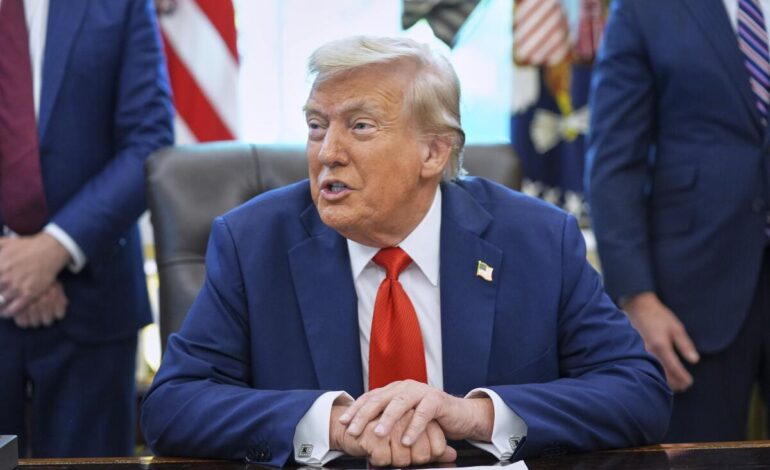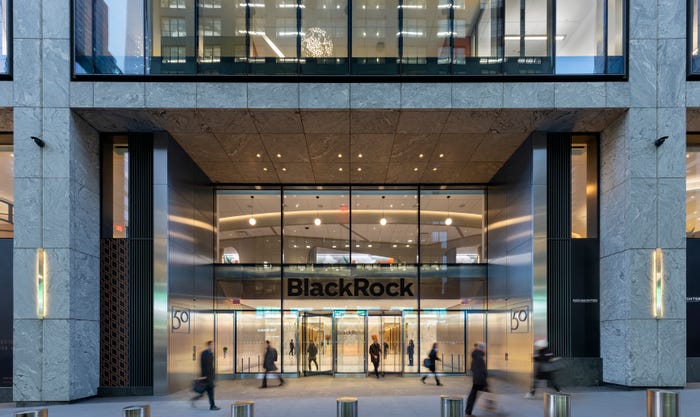Trump Warns of ‘Purge or Revolution’ in South Korea Ahead of Meeting

In a surprising statement made on social media, former U.S. President Donald Trump warned of a potential “Purge or Revolution” in South Korea ahead of his meeting with the newly inaugurated President Lee Jae Myung. This assertion comes as Trump prepares to host Lee at the White House to discuss critical issues, including the recent trade agreement between the two nations.
During a press conference on Monday, Trump elaborated on his comments, indicating that he was referring to recent raids conducted by the South Korean government on various institutions, including a church and a U.S. military base. He stated, “I heard bad things. I don’t know if they are true or not. I’ll be finding out,” words that set a potentially confrontational tone for the upcoming discussions.
Political Turmoil and Recent Raids
South Korea has experienced significant political upheaval following the ousting of former President Yoon Suk Yeol, who attempted to impose martial law last December. The Constitutional Court dismissed Yoon in April, leading to a turbulent political landscape. Lee, who narrowly lost to Yoon in the 2022 election, has been a vocal critic of the conservative establishment.
Trump did not specify the raids he was referencing; however, reports from the Yonhap News Agency indicated that police had conducted a raid on a church linked to a conservative pastor. This pastor was allegedly involved in a violent protest against the government earlier this year. Additionally, a special prosecutor’s team investigating corruption allegations against Yoon’s wife, Kim Keon Hee, also raided the facilities of the Unification Church due to accusations of receiving luxury gifts. Investigators also targeted Osan Air Base last month as part of their inquiry into the martial law enactment.
Trump’s comments were delivered just prior to his meeting with Lee, where the two leaders were expected to address the complexities of their nations’ economic and defense relationships. The former president emphasized on social media that business relations with South Korea could be jeopardized if the current political climate persists.
Trade Agreements and Defense Cooperation
The meeting comes on the heels of a significant trade agreement finalized in July 2023, which saw South Korea committing hundreds of billions of dollars to U.S. investments. Under the agreement, tariffs on South Korean goods were set at 15%, a reduction from Trump’s earlier threat of rates as high as 25%. Trump characterized South Korea as “completely OPEN TO TRADE” with the U.S., particularly in sectors like automobiles and agricultural products, which are vital to the South Korean economy.
Lee’s administration aims to strengthen cooperation in key manufacturing sectors, including semiconductors, batteries, and shipbuilding—areas that Trump has prioritized. Additionally, discussions are expected to include the presence of U.S. troops in South Korea, as well as concerns regarding potential increases in defense spending.
Before arriving in Washington D.C., Lee made a significant diplomatic trip to Tokyo, marking his first bilateral visit as president. This trip, which included a meeting with Japanese Prime Minister Shigeru Ishiba, was seen as a gesture of unity between the two nations, which have a complicated historical relationship.
Lee, a former child laborer who overcame personal challenges to ascend through political ranks, has become a notable figure in South Korean politics. His presidency follows a period of intense scrutiny and public unrest, culminating in an assassination attempt in January 2024, where he was attacked while engaging with supporters.
Arriving in the U.S. on Sunday, Lee participated in a dinner event with approximately 200 local Korean-Americans, showcasing his commitment to fostering relationships with the South Korean diaspora.
As Trump and Lee prepare to meet, the eyes of both nations are on the developing situation in South Korea, where political stability remains a pressing issue. The outcomes of their discussions could significantly influence future U.S.-South Korea relations and regional dynamics.






